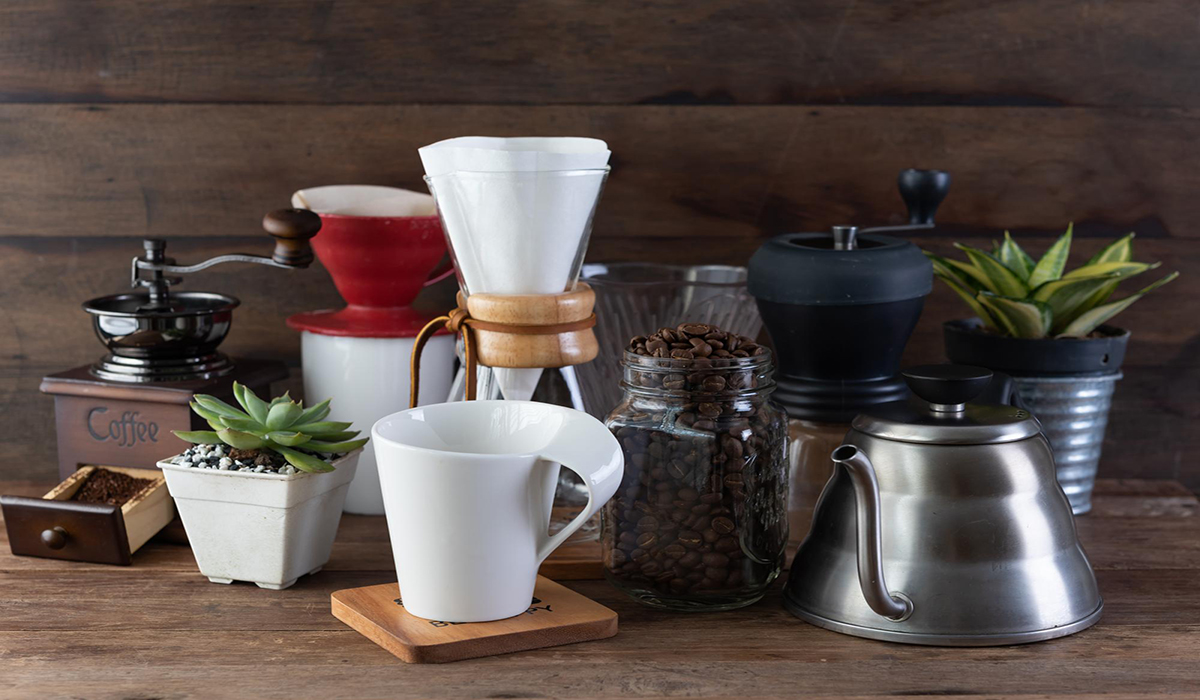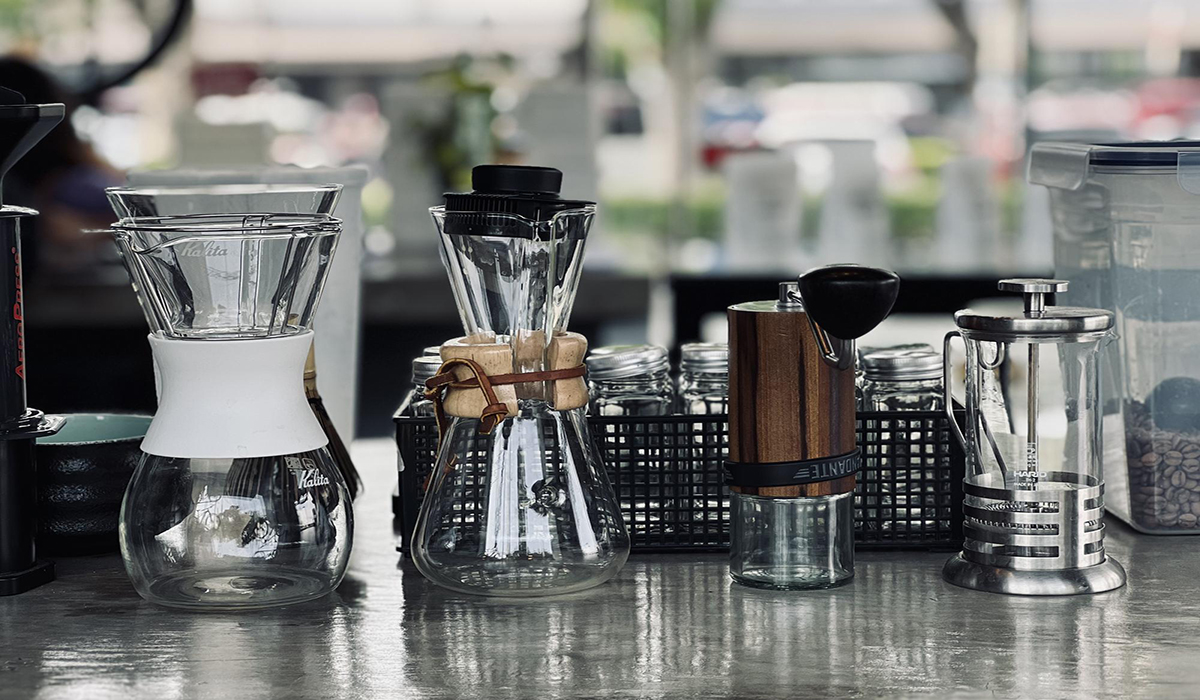Specialized Coffee Business for raw materials and equipment at Parto Padideh

The coffee industry in Iran is currently experiencing a period of growth and prosperity. Leading companies in this field are seeking new ways to improve the quality of their products. Parto Padideh Company, a newcomer to the market, has entered the supply chain of raw materials and equipment with a fresh and distinctive perspective.
Specialized Coffee Business
In addition to production, the company places a strong emphasis on specialized coffee business. In the following, we will examine various aspects of Parto Padideh’s operations in this domain.
Importing Green Coffee Beans from Main Origins
Parto Padideh aims to initiate the direct green coffee trade beans from major producing countries such as Brazil, Colombia, India, Indonesia, and Vietnam. This direct approach eliminates intermediaries, granting access to higher-quality products at more competitive prices. Our experts believe that direct contact with farms and producers allows for a more precise selection of coffee tailored to the Iranian market and local consumer tastes.
According to Parto Padideh’s management, the company will initially import green coffee to supply its own production line. However, there are long-term plans to provide green coffee to other manufacturers as well. Each geographical region produces coffee with its own distinct characteristics.
Brazilian beans typically offer nutty and chocolatey notes, while Colombian coffee is known for its fruity flavors and balanced acidity. The correct combination of these beans is key to achieving the desired taste profile. With a deep understanding of these differences, Parto Padideh is committed to creating a blend suited to Iranian preferences.
Before any bulk purchase, our experts carry out thorough testing on green coffee samples to ensure quality. These tests include moisture analysis, detection of defective beans, and trial roasting to evaluate the final taste.
Quality Control and Global Standards
In the specialized field of coffee, quality is the top priority. Parto Padideh has developed detailed methods for assessing the quality of raw materials. Our experts evaluate green coffee beans from both physical and chemical perspectives. Moisture testing is particularly crucial, as excess moisture can lead to mold growth and product damage.
Additionally, broken or defective beans, presence of foreign objects, and the aroma and flavor of the samples are thoroughly examined. The company also includes pesticide residue analysis as part of its quality control protocol. Utilizing specialized coffee business centers in Tehran, the company professionally manages the procurement, purchase, and sale processes. Once the green coffee reaches the factory, the quality control process continues.
The beans are stored in special moisture-proof containers to preserve their original quality. They then enter the coffee production line, passing through various impurity separation systems. Magnets extract metal particles, destoners remove stones, and finally, electronic-eye sorters detect defective beans. This multi-stage process ensures that only premium beans move on to the roasting phase. Such precision in selecting and controlling raw coffee materials is one of the secrets behind the excellent taste of Parto Padideh coffee.
Advanced Equipment and Technical Support
Another important aspect of Parto Padideh’s specialized coffee business division is the import of modern coffee equipment and machinery. The company has sourced its main production line equipment from IMF in Italy. These machines incorporate cutting-edge coffee industry technologies.
The coffee roasting machines are equipped with highly accurate sensors that allow precise control over temperature and roasting time. These systems can also store various roasting profiles, enabling exact replication once a desired result is achieved.
An important advantage is the access to international technical support. This cooperation equips Parto Padideh’s production team with the necessary knowledge to make optimal use of the equipment. In the future, the company also intends to become a specialized importer of coffee equipment.
This move aims to elevate the overall quality level of the coffee industry in Iran. With the rapid growth of coffee shops and the increasing interest of younger generations in coffee, demand for professional equipment is rising. Leveraging its expertise and international relationships, Parto Padideh is well-positioned to meet this market need.
Multi-Brand Strategy and Product Diversity
With a deep understanding of market diversity, Parto Padideh has adopted a multi-brand strategy. The company has developed three distinct brands, each targeting a specific customer segment. Diamante Coffee, featuring approximately 17 products, is tailored for the professional market and coffee specialists. This brand primarily utilizes Arabica beans and offers high-quality products.
The Felicita Coffee brand is designed for more general commercial use and is offered at a more accessible price point. The third brand, Opera, includes 27 diverse products aimed at home consumers and is available in supermarkets. This brand and product variety demonstrates the company’s strong capabilities in sourcing and blending various coffee beans.
To support such a broad range of products, the company’s specialized coffee business division must be capable of importing coffee beans with different quality levels.
Furthermore, Parto Padideh has the ability to create new products based on customer needs. Such flexibility in production requires a robust supply chain and deep knowledge of coffee beans. Through investment in advanced equipment and expert personnel, Parto Padideh has developed this capability. The result is a portfolio of 45 diverse products, meeting a wide range of market demands.
Future Outlook and Development Plans
With a long-term perspective, Parto Padideh is working to solidify its position in specialized coffee business. The company’s development plan is phased. In the first stage, the focus is on launching the production line and offering high-quality products.
During this phase, most raw material imports are aimed at meeting internal needs. In the next stage, specialized coffee business division will expand to supply other manufacturers with premium raw materials. This strategy will not only contribute to business growth but also help elevate the overall quality and development of the coffee industry in Iran. In the long run, the company plans to operate in the field of importing specialized coffee equipment as well.
This equipment includes roasting machines, professional grinders, and barista tools. Given the increasing coffee consumption in Asia and the Middle East, this goal is well within reach. According to statistics, per capita coffee consumption in Saudi Arabia is 1.5 kg, while in European countries, the average reaches 7 kg. These figures highlight the growth potential of the regional market.


